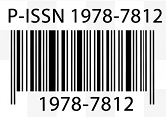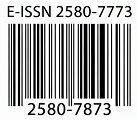POSISI DAN TRANSFORMASI KISAH-KISAH ALQURAN
(Suatu Pembacaan Terhadap Literatur Ulumul Qur’an dan Kesarjanaan Barat)
Abstract
This article is a reading of the primary literature in the study of the Qur’an in looking at the stories narrated by Qur’an. Likewise, this paper describes how Orientalists interpret the stories of the Qur’an. The purpose of this academic work is to see the methods and approaches of the two scholarships above in interpreting the stories of the Qur’an. In the early literature of Qur’anic studies, it is found that the stories of the Qur’an are not discussed in a special section, but are included in a chapter of tikrar al-Qur’an, Makki wa Madani, or Tanzil al-Qur’an. It differs from the later books on The 'Ulumul Qur’an, which put the discussion of the stories of the Qur’an in separate chapters. However, it is important to emphasize that al-Zarkasyi and al-Suyuti who represent classical scholars have realized the importance of seeing the interlocutors of the stories of the Qur’an and the message conveyed to the first recipients. Meanwhile, western scholarship will find methodological transformation in approaching the stories of the Qur’an along with academic problems regarding the source and truth of the Qur’an.
References
Andrae, Tor. Mohammad: The Man dan his Faith. London: Geoge Allen dan Unwin LTD. 1936.
Anwar, Rusydie. Pengantar Ulumul Qur’an dan UlumulHadis: Teori dan Metodologi. Yogyakarta: IRCiSod. 2015.
Arkoun, Mohammed. Kajian Kontemporer Alquran, terj. Hidayatullah. Bandung: Penerbit Pustaka. 1998.
Aṣfaḥānī, Abū al-Qāsim al-Ḥusain ibn Muḥammad bi al-Rāgib. Al-Mufradāt fī Garīb al-Qur’ān. Beirut: Dār al-Qalm. 1412 H.
Fathina, Rasyidah. “Mahmoud Muhamed Taha: Redefinisi Konsep Nasakh sebagai Pembentuk Syariat Humanis”. Jurnal Hukum dan Syariah, Vol. 1, No. 1 (2010).
Geiger, Abraha. Was hat Mohammed aus dem Judentum Aufgenommen. terj. F.M Young. Judaism and Islam. Madras: The M.D.C.S.P.C.K Press. 1898.
Ḥasan, Muḥammad Kāmil. Al-Qur’ān wa al-Qiṣaṣ al-Ḥadītsah. t.tp: Dār al-Buḥuts al-‘Ilmiyyah. 1970.
Ikhwan, Munirul. “Western Studies of Qur’anic Narrative: From the Historical Orientation into the Literary Analysis. Al-Jami’ah. Vol. 48. No. 2. 2010.
Izutsu, Toshihiko. God and Man in the Koran: Semantics of the Koranic Weltanschauung. Kuala Lumpur: Islamic Book Trust. 2002.
Khalafullah, Muhammad A. al-Fann al-Qaṣaṣ fī al-Qur’ān al-Karīm. terj. Zuhairi Misrawi dan Anis Maftukhin. Alquran Bukan “Kitab Sejarah”. Jakarta: Paramadina. 2002.
Koloska, Hannalies. “The Sign of Jonah: Transformation and Interpretation of Jonah Story”, Angelika Neuwirth. ed. Qur’anic Studies Today. New York: Routledges. 2016.
Mardan. Alquran sebuah Pengantar. Jakarta: Mazhab Ciputat, 2010.
Muir, William. The Life of Mahomet: With Introductory Chapters on the Original Sources for the Biography of Mahomet and on the Pre-Islamite History of Arabia. London: Smith, Elder and CO. 1861.
Mujib, Abdul. “Pendekatan Fenomenologi dalam Studi Islam”. Al-Tadzkiyyah. Vol. 6 (November. 2015).
Mustaqim, Abdul. “Kisah Alquran: Hakikat, Makna, dan Nilai-Nilai Pendidikan”. Ulumuna. vol. 15. no. 2 (2011).
Qadafy, Mu’ammar Zayn. Buku Pintar Sababun Nuzūl dari Mikro hingga Makro: Sebuah Kajian Epistemologi. Yogyakarta: In AzNa Books. 2015.
Qaṭṭān, Mannā’ Khalīl. Mabaḥits fī ‘Ulūm al-Qur’ān. Riyadh: Maktabah al-Ma’ārif li al-Nasr. 1421 H.
Robinson, Neal. “Jesus and Marry in the Qur’an: Some Neglected Affinities”. Religion. no 20 (1990)
Al-Ṣāliḥ, Subḥī. Mabāḥits fī ‘Ulūm al-Qur’ān (Beirut: Dār al-‘Ilm lil Malābīn, 2000).
Shihab, M Quraish. Kaidah Tafsir: Syarat, Ketentuan, dan Aturan yang Patut Anda Pahami dalam Memahami Ayat-Ayat Alquran. Ciputat: Lentera Hati. 2013.
Sprenger, Alloys. The Life of Muhammad: from Original Source. Allahabad: The Persbyterian Mission Press. 185.
Steenbrink, Karel. De Jezusversen in de Koran. terj. Simon Rae, The Jesus Verses of the Qur’an (Delhi: The Henry Martyn Institute (HMI) of Hyderabad and Media House. 2011.
Taha, Mahmoud Muhamed. The Second Message of Islam: Syari’ah Demokratik, terj. Nur Rahman. Surabaya: Elsad. 1996.
Tisdall, W. St. Clair. The Original Sources of the Qur’an: Its Origin in Pagan Legends and Mythology. t.tp: tp. 1905.
Watt, W. Montgomery. Bell’s Introduction to the Qur’an. Edinburgh: Edinburgh University Press. 1970.
Al-Zarkasyī, Abū ‘Abdullāh Badr al-Dīn. Al-Burhān fī ‘Ulūm al-Qur’ān. t.tp: Dār Iḥyāh al-Kutub al-‘Arabī. 1376 H.
Al-Zarqānī, Muḥammad ‘Abd al-‘Aẓīm. Manāhil al-‘Irfān fī ‘Ulum al-Qur’ān. Mesir: Maṭba’ah ‘Īsā al-Bābī al-Ḥalābī. t.th.



_(1)1.png)















